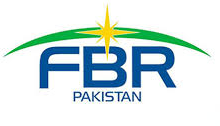i INP-WEALTHPK
Abdul Ghani
The Federal Board of Revenue (FBR) has drafted significant amendments to the Customs Rules, 2001, to streamline the trade procedures and expand the scope of insurance guarantees, thereby facilitating business operations.

The SRO 1359(I)/2025, a copy of which is available with WealthPK, marks a strategic departure from the conventional financial security instruments. The move is seen as part of a broader effort to modernize Pakistan’s customs architecture, align with the faceless customs assessment model, and reduce reliance on physical bank instruments – a long-standing demand of the business community.
These changes are designed to enhance procedural efficiency, reduce reliance on bank guarantees, and introduce flexibility for exporters and importers of raw cotton, cotton yarn, and grey cloth. A key highlight of the draft is the introduction of an “insurance guarantee” mechanism. Under the proposed amendments, insurance companies with a Pakistan Credit Rating Agency (PACRA) rating of AA++ or higher will be allowed to issue guarantees in favor of the FBR.
This measure is intended to provide an alternative to the traditional bank guarantees, thereby reducing financial burdens on businesses. Additionally, the amendments propose the exclusion of raw cotton, cotton yarn, and grey cloth from certain customs requirements under the Export Facilitation Scheme (EFS), aiming to simplify the procedures for the textile sector.
Import consignments of these goods will be allowed under the scheme, provided that the bills of lading are issued within 10 days of the notification. Moreover, the timeframe for utilization of import consignments has been extended from nine months to an additional nine months under exceptional circumstances, subject to approval from a high-level committee comprising officers from the FBR, the Ministry of Commerce, and the Ministry of Industries and Production.
The amendments also propose substituting the term “revolving guarantee” with “bank guarantee or insurance guarantee,” indicating a strategic shift toward broader guarantee instruments. Dr. Najeeb Ahmad, the FBR spokesperson, told WealthPK that these amendments align with the government’s commitment to improving Pakistan’s business climate by reducing procedural bottlenecks and enhancing trade facilitation.
“This is the beginning of replacing the outdated collateral regimes with smarter, digital-friendly guarantees. It will boost liquidity for exporters and improve compliance flexibility,” said the spokesperson. He said the proposed amendments are currently in the consultation phase, and final approval will be granted after reviewing the stakeholders’ feedback.
A source at the Pakistan Business Council (PBC) told WealthPK that the introduction of insurance guarantees could be transformative if backed by a clear regulatory framework and approved insurance entities.
Credit: INP-WealthPk



